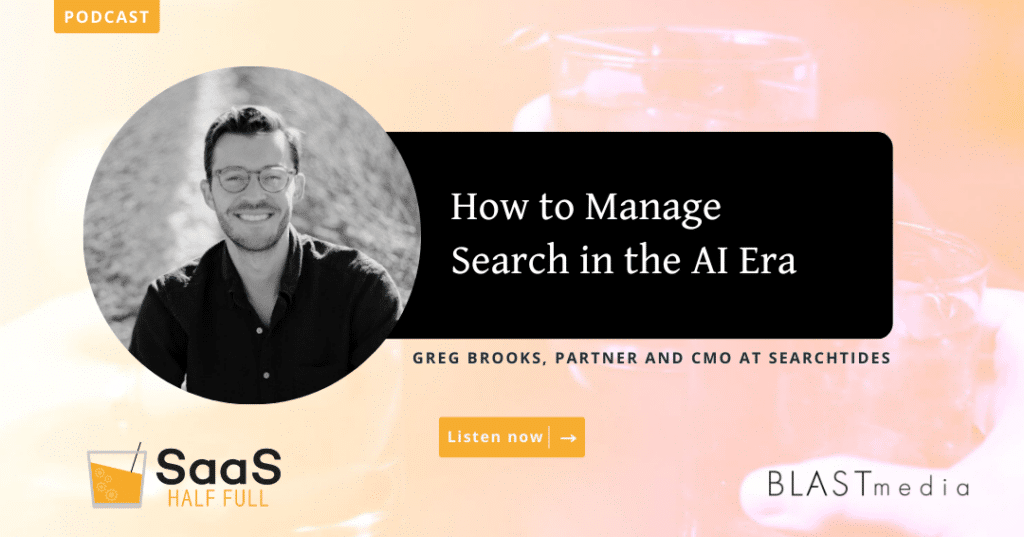SaaS marketers know by now that AI has — and will — impact search. But in an ever-changing sea of algorithms, what the heck does Google care about today (and in the future?), and how can marketers make moves now to stay ahead of where search is headed?
Greg Brooks, partner and CMO at SearchTides, ironically believes we are moving towards the “human era” of search, even though there will be orders of magnitude more AI-generated content on the internet than ever before. Join us as he discusses what Google cares about when making content decisions and details tactical and practical advice on performing (think favicons, schema and all the search-speak).
Niches are in
According to Greg, experience and expertise are the driving forces behind modern SEO. Consumers want thought leaders with authority over their chosen topic—and Google’s web crawlers are taking note.
“[SEO used to be] about website authority, good content existing… and strong website performance, meaning your webpage couldn’t take 10 seconds to load. That was yesterday,” said Greg. “Today, in addition to all of those things, it is the experience and the expertise, your authorship profile. It’s kind of like, ‘Am I vetted? Am I qualified to talk about this? Am I actually bringing uniqueness to the table so that I’m adding value to the internet?’”
Uniqueness is a key element here. Interesting perspectives will attract more eyes than un-nuanced takes on broad topics.
And strap in because, according to Greg, diverse touchpoints will soon weigh even more on a thought leader’s credibility. For example, if someone publishes a blog on rock climbing, have they edited their Twitter/X profile to reflect that expertise? Are they publishing articles about rock climbing on other reputable sites? Commanding authority over increasingly niche topics is critical.
Authenticity in the AI age
There’s no escaping generative AI (GenAI) as a digital marketer. The highest-performing marketers are currently working to implement GenAI in their workflows to expedite critical tasks like content creation and campaign ideation.
However, Greg mentioned that successful marketers should also acknowledge that we’ve entered a brave new world: the era of information overload. With more content than ever before, consumers may become overwhelmed by their options — and the most authentic content will always win more eyeballs. Greg refers to this trend as the “human era” of search.
“The way to win tomorrow is to be the best because there’s fewer winners — and that’s just the reality,” said Gref. “If you’re not even approaching it from that perspective, I don’t want to say you’re fighting an unwinnable battle, but I can’t imagine how much more difficult it will be.”
Digital marketers must use AI to stay ahead, but relying on AI alone is a recipe for disaster. So, how can content marketers actually operationalize AI?
Greg suggested thinking about AI as your assistant. Possible use cases include:
- Use GenAI to analyze the perspectives of high-performing results on a search engine results page (SERP). A prompt could look like this: “Analyze the top five links for this search, and tell me what context they’re all missing.”
- Upload a style guide and a drafted article. Ask GenAI to critique the draft’s adherence to tone, style, etc. A prompt could look like this: “Please review this draft based on the attached style guide. Make suggestions for improvements.”
For more of Greg’s insights, listen to episode 370 of SaaS Half Full.

